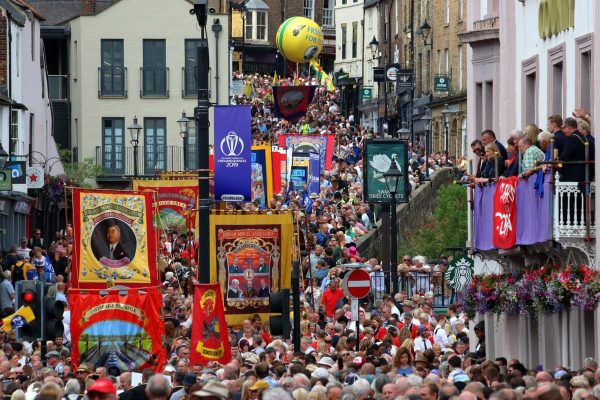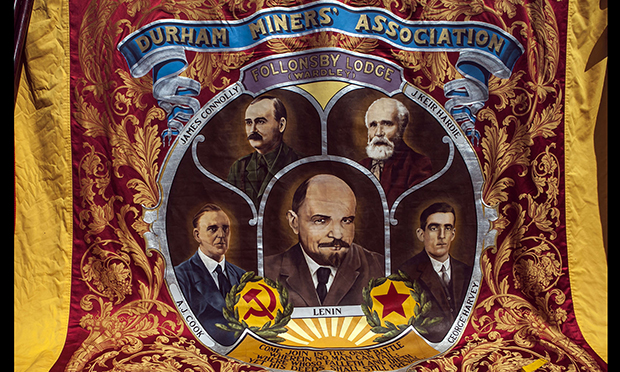
A bit different for this kind of community but I suspect it might be of interest to some americans, particularly if any of you are organisers.
These events are essentially trade unionism and communist pride parades, before pride parades. And form a fairly useful connection between trade unionists as a fundamental identity to be proud of and local communities. These parades will then eventually culminate in large speeches by relevant organisers and activists.

Their secondary function is that it becomes impossible to propagandise and villainise important historical militant trade unionists and communists included in banners in parades when local communities march celebrating them every year without being deterred. Banners include Marx, Engels Lenin, James Connolly, and various other militant trade unionists important to the history of these unions.

Things are a bit rough around the edges right now, this is the first time the event has been put on again post-covid after a 3 year absence, socialists observed a rather longer gap in events despite capitalists “opening up”.
This is the 137th time the event has been held.

It’s really interesting to realise how strongly entrenched these are locally. The North East was obviously heavily dependent on the mining industries during the 19th and 20th centuries, and there are still a large number of smaller parades in towns across the region. Some of these are simply hijacked by the local miner paraders, such as Houghton Feast.
It is rather hilarious to see the contemporary participants, none of whom have ever stepped anywhere near a picket line let alone a coal or iron mine, and for whom historic industrial labour is at best a distant family memory passed down from prior generations. The role played by (still numerous) “Working Men’s Clubs”, where the pictures regalia tend to reside in between these events, would be interesting to explore. They are essentially drinking dens in deprived areas that remain insular and parochial even when they can hardly be described as isolated in the modern world. Places like Craghead, Grange Villa, where the hills have eyes
Interesting to see a post like this on here. Good stuff.
I think this is a little unfair. For the participants in the parade at least the majority are unionised workers and have definitely been participating in pickets especially in the last year or so which has been almost non-stop strike action across different sectors of the UK.
You are correct that they definitely don’t look like the old mine workers and Working Men’s Clubs though that’s for sure, to be honest it’s a surprise that some of those clubs still exist especially as covid must have cost them, not complaining though.